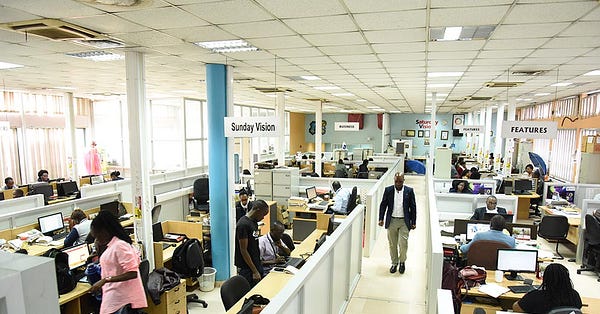✍️Science Writing News Roundup #100 (June 3, 2022)
Reporting on retractions + The science books you should read this year + Tips on how to translate scientific studies into news stories.
Reporting on retractions: Reporting on retractions “can be challenging,” Pratik Pawar writes. “Stories can be difficult to spot, sources can be reluctant to speak, and assembling the evidence is time-consuming. But there are ways around these hurdles. And for some reporters, bringing such transparency to science and publishing is worth the extra work.”
Welcome! You are reading the Science Writing News Roundup, a newsletter for science writers. You can also read this edition online. Did someone forward you this newsletter? Sign up here.
🧭Resources
The science books you should read this year + How to become a better storyteller + Tips on how to translate scientific studies into news stories. [Bonus content for monthly supporters]
New tip sheet guides reporting on rise of medication abortion and its safety. With the U.S. Supreme Court expected within weeks to strike down the landmark Roe v. Wade case, journalists can anticipate an increased focus on abortion pills.
Massive drilling database helps track threats from local oil, gas wells. A new database claims to include every active oil and gas production facility in the United States.
‘Courses & Resources’ for journalists covering COVID-19: A new project from the Knight Center and UNESCO. Journalists around the world now have a multilingual resource hub to help with training and tips for covering the COVID-19 pandemic.



🎬Videos
How to include more diverse sources in your science stories + Misinformation about science and what to do about it + Tips on covering food security [Bonus content for monthly supporters]

📗Articles
AP Stylebook adds inclusive storytelling chapter with updates on covering race, gender, sexual orientation and more. Other changes include 35 disabilities-related entries and expanded guidance on the usage of they/them/their pronouns.
Science writing behind the scenes: An interview with the winner of the Canadian Blood Services Lay Writing Competition.
How science fuels a culture of misinformation: “We tend to blame the glut of disinformation in science on social media and the news, but the problem often starts with the scientific enterprise itself,” writes Joelle Renstrom.


✏️News
The Biden administration announced its plan to establish a new Office of Environmental Justice, intended to focus on efforts to ensure all communities have access to clean air and water and to ease the effects of disruptive traffic and industry.
📄Opportunities
Calls for pitches: Write about science & society, science for kids, energy in Europe [Bonus content for monthly supporters]
Applications open for EGU Science Journalism Fellowships 2022 (up to €5k). The fellowships enable journalists to report, in any European language, on ongoing research in the Earth, planetary or space sciences.
Digital Storytelling for the Next Generation of Latinx Journalists: Apply now for a free online course offered by Knight Center and Microsoft.
Call for Proposals: Asia-Pacific Climate and Environmental Story Grants 2022. Grants will support the production of in-depth stories on critical environmental issues in the region.
🌏Events
The West Coast Climate Crisis Symposium (June 4, 2022)
Beyond the hype: The inside story of science's biggest media controversies (June 7, 2022)
One Health/One Planet: Exploring the Intersection of Climate Change and Infectious Disease (June 7, 2022)
Investigating High-Consequence Biological Events of Unknown Origin (June 7, 2022)
Anti-Black Racism, Health & Health Care: A Reckoning—and a Path Forward (June 9, 2022)
Experts on Camera: Dr. Ushma Upadhyay: Abortion in the United States (June 9, 2022)
Interconnected: Reporting the Climate Crisis (June 9-10, 2022)
How to get started as a science writer - an insider's guide (June 14, 2022)
Behavioral Science Research Audit for Journalists (June 16, 2022)
The 2022 Vienna Conference on the Humanitarian Impact of Nuclear Weapons (June 20, 2022)


🚀Jobs and internships
To see the jobs and internships below, please click here to become a monthly supporter:
Science Writing Intern, NC
Media Fellow, US-based
Science Journalism Fellow, US-based
Managing Editor, CA
Communications Officer, MA
Writer, NY
Science News Writer, UK
Health Reporter, MS
News Assistant, Remote
Editor, US-based
Social Media Specialist, Remote
Science Writer, Remote
Content Editor, UK
Sr. Editor, US-based
Reporter, PA
Reporter, ND
👉 Thanks for reading! Subscribe for free to receive the next post in your inbox:
Worried you missed something? See previous posts here. What would you like to see in the newsletter? Please send me your suggestions: sciencewriting@substack.com




